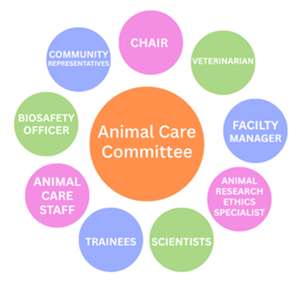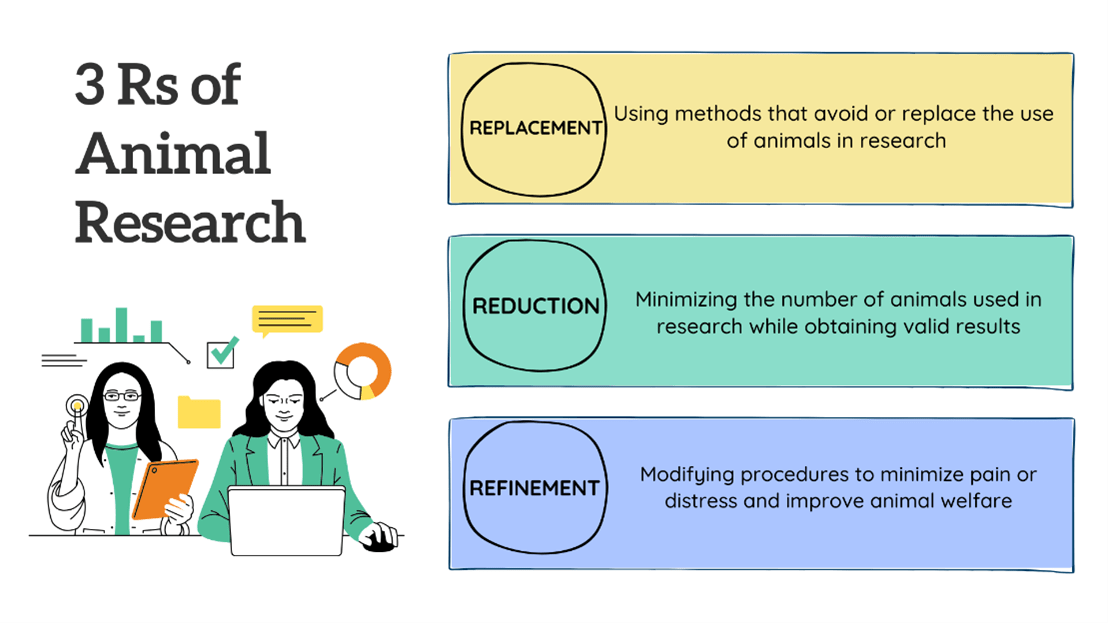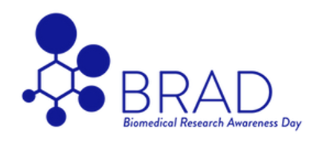The Role of Animals in Advancing Science
Animals play a vital role in advancing our understanding of biology, medicine, and disease. Because of their genetic, biological, and behavioural similarities to humans, they provide invaluable insights into neurological conditions and disorders as well as new treatments for mental illness and addictions. Thanks to emerging technologies such as advanced computer modelling and cell-based systems, researchers are finding more ways to reduce or replace the use of live animals, and these alternatives are used whenever possible. However, for some critical questions, animal research remains the only way to achieve accurate, reliable results. When this is the case, studies are carried out under strict ethical standards and careful oversight, ensuring animals contribute in the most responsible way possible to the development of life-saving treatments and therapies.
Governance and Compliance:
In Canada, the Canadian Council on Animal Care (CCAC) sets and oversees compliance with high standards for animal welfare and the ethical use of animals in scientific research. Institutions conducting animal research that receive funding from federal agencies must obtain CCAC certification, known as Good Animal Practice (GAP). Failure to comply with CCAC standards can result in the loss of GAP certification and the suspension of federal funding until recertification is achieved.
Beyond the GAP certification, institutions are also required to adhere to provincial regulations. In Ontario, all animal research facilities must be registered under the Animals for Research Act, which is enforced by the Ontario Ministry of Agriculture, Food, and Rural Affairs (OMAFRA). Government veterinary inspectors perform unannounced visits at these institutions to ensure compliance with these legal standards.
Animal Research at CAMHCAMH conducts research involving only mice and rats. In 2024, 2,516 mice and 740 rats were part of studies exploring the neurobiology of brain disorders such as Alzheimer’s disease, depression and addiction, and research to discover new treatments for these conditions. |
CAMH Oversight for Ethical Animal Involvement

The Animal Care Committee at CAMH is a dedicated, multidisciplinary team that is responsible for overseeing the ethical involvement of animals in research, ensuring compliance with regulatory standards and promoting animal welfare. The committee reviews research proposals, monitors animal care practices and ensures that any animal use aligns with established ethical guidelines and legal requirements.
CAMH works with committed veterinarians that provide expert advice on animal care practices, assist in developing protocols to promote animal welfare and monitor the animals’ health throughout the research process.
CAMH provides comprehensive training programs for its personnel who work with animals. The training covers topics such as animal care and welfare, ethical guidelines in animal research and proper animal handling techniques. These programs are mandatory and include hands-on experience to ensure staff CAMH personnel are fully equipped to handle animals responsibly and in compliance with established standards.
Animal Care Facilities and Enrichment
CAMH animal care facilities are purpose-built to ensure animals are treated with compassion and housed safely, meeting the rigorous standards set by the CCAC and OMAFRA. These standards encompass key factors such as space, security, ventilation, temperature, lighting, humidity, noise levels, and cleanliness.
To support animals' natural behaviours, CAMH provides environments that promote social housing and ample space for activities like playing, climbing, and exploration. They are housed with enrichment such as nesting materials, shelters, tubes, mezzanines, wooden blocks and running wheels. The Animal Care Committee is responsible for the ongoing review and approval of all aspects of the animals’ housing and care environments.

Replacement, Reduction and Refinement (the 3Rs):
CAMH continually considers the 3Rs of animal research by using alternative methods to animals when suitable, focusing on reducing the number of animals involved in experiments by optimizing experimental design, and refining research protocols to maximize animal welfare through better handling, housing and procedural techniques.

Highlights in advancements in the 3Rs:
- Handling Techniques to Reduce Stress in Mice in 3 days – Dr. Thomas Prevot
This study developed a standardized method to habituate mice to interact with human experimenters and handlers. This approach demonstrated improved welfare for the animals and encourages a human-animal bond.
At CAMH, we practice the 3Rs by:
- Ensuring that when a study is complete, animals are transferred to the training program to help staff and students learn how to gently handle the animals;
- Testing an animal’s used bedding rather than taking blood samples , thereby reducing the number of rodents involved in our health monitoring program;
- Purchasing larger enclosures to provide more space for the animals;
- Purchasing life-like animal replicas to replace live animals used in the training program;
- Continually improving our enrichment program, including new/rotating toys, tunnels and shelters, treats etc.
Biomedical Research Awareness Day/BRAD

https://www.bradglobal.org
BRAD is an event designed to raise public awareness about the importance of biomedical research and its contributions to health and medicine. It provides an opportunity for researchers, students and institutions to engage with the community, share knowledge and highlight the ethical practices and advancements in scientific research that improve human and animal health. CAMH is a member of BRAD, and organizes an event for staff, trainees and researchers to get together, discuss science, and thank the animal care givers that provide outstanding care for all animals housed within CAMH facility.